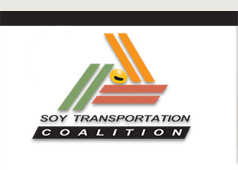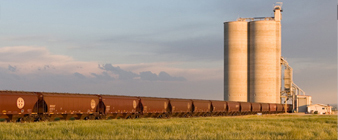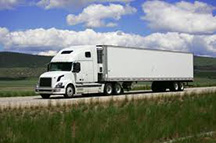 |
 |
|
| eNews • February 2015 | ||
| Promoting a Cost-Effective, Reliable and Competitive Transportation System |
||
 ILWU chassis agreement could spark legal challenge from truckers
ILWU chassis agreement could spark legal challenge from truckers
Harbor truckers in Los Angeles-Long Beach are preparing to legally challenge the International Longshore and Warehouse Union and marine terminal operators as soon as union mechanics attempt to detain trucker-owned or leased chassis at the ports under a reported agreement the ILWU reached with employers last week in coastwide contract negotiations.
“If there is an issue with our owned or leased chassis, we will look closely at our legal options,” said Mike Johnson, operations manager at Port Logistics Group and president of the Harbor Trucking Association of Southern California.
Much to the relief of many who have endured costly delays for months, the Pacific Maritime Association confirmed that negotiators last weekend had come to a tentative agreement on the issue of ILWU jurisdiction over chassis inspections. Neither the ILWU nor the PMA would discuss the details, but the ILWU reportedly will have the authority to inspect all chassis before they exit marine terminals, and to perform any needed repairs at the marine terminals before releasing the equipment as being roadworthy.
Therein lies the problem. Harbor truckers in Southern California say that despite what comes out of the ILWU contract when it is finally resolved, the PMA is granting jurisdiction to the ILWU that waterfront employers have no legal right to give the union now that PMA members no longer own the assets.
The reason is that while ocean carriers are members of the PMA on the West Coast and USMX, the employers’ organization on the East and Gulf coasts, equipment-leasing companies that own many of the chassis are not members of those employers’ groups and therefore have no contractual relationship with the ILWU or the International Longshoremen’s Association.
Chassis inspections are becoming a top issue for harbor trucking companies on both coasts because truckers are purchasing or leasing hundreds of chassis in order to have sufficient equipment to serve their customers. Weston LaBar, executive director of the Harbor Trucking Association, expects this trend to accelerate due to the severe port congestion and chassis shortages that emerged at the largest U.S. port complex this past year. New York-New Jersey, the second busiest port complex, has had similar chassis shortages and dislocations.
The legal issues involving chassis ownership and demands by unions to inspect, maintain and repair chassis involve safety regulations enforced by the Federal Motor Carrier Safety Administration, which make no mention of waterfront contracts on either coast.
“Under what authority in the regulation is the ILWU operating?” Johnson asked. Curtis Whalen, an attorney who is executive director of the American Trucking Associations’ Intermodal Conference, said federal law grants no authority to longshore unions. “Federal law has no role for out-gate inspections by the ILWU,” Whalen said.
Truckers oppose dockworker jurisdiction over chassis inspections for a host of reasons. The most serious objection is that ILWU inspections of chassis are redundant and contribute to port congestion. Equipment owners under FMCSA regulations must have their chassis thoroughly inspected once a year. A federal inspection sticker is affixed to the equipment, and truckers have paperwork showing the equipment passed inspection. California has its own inspection requirements for chassis. Equipment owners inspect the chassis to ensure safety and protect themselves legally in the event of an accident. Drivers perform a pre-trip inspection and can turn down a chassis because of any defects that put the equipment in violation of law.
ILWU inspections at the outgate, under the best of circumstances, add unnecessary delays to thousands of truck visits each day and contribute to delays for truckers that reduces their productivity, truckers say. Under the worst of circumstances, truckers charge, ILWU mechanics ramp up their inspections and arbitrarily “red-tag” as inoperable dozens of perfectly safe chassis whenever they choose to do so, such as the union did last fall to increase leverage in the coastwide contract negotiations.
Johnson said ILWU mechanics sometimes detain for days chassis that need minor repairs which could be fixed on the spot, such as replacing a tire. The cost of ILWU labor to repair chassis, moreover, is much higher than equipment owners are charged elsewhere. “I don’t want to pay the ILWU to repair my chassis,” he said.
Furthermore, now that trucking companies are rapidly expanding the ownership or leasing of chassis, they must ensure their equipment is in good working order, not only to comply with federal law, but to protect themselves in the event of an accident that involves injuries or loss of life, so they have an added incentive to keep their equipment in good repair.
Johnson said some truckers are choosing to own the equipment outright, although most will probably lease the equipment from chassis-leasing companies. Leases of 30 days or longer offer more favorable rates, with the best rates available when the lease requires that the trucker maintain and repair the chassis.
Chassis maintenance and repair, or M&R, issues have become quite complex in recent years due to the increased involvement of equipment-leasing companies and chassis pools at seaports. International Longshoremen’s Association President Harold Daggett made union jurisdiction over chassis M&R a key demand in the East Coast contract that was negotiated in 2012 and took effect in March 2013. Whalen noted that the ILA contract has language about an agreement covering union jurisdiction over chassis M&R for equipment in the pools, but the agreement adds no clarity to the situation and has had no apparent effect on the New York-New Jersey pools. Discussions on the subject are still going on.
On the West Coast, neither the chassis-leasing companies nor the truckers had a seat at the bargaining table when the ILWU and PMA reached their reported chassis deal. When a new contract is negotiated and approved, and the details of chassis jurisdiction are available for scrutiny, there should be more clarity on this subject, Whalen said.
Similarly, the ports of Los Angeles and Long Beach have worked closely with the three largest leasing companies -- DCLI, TRAC Intermodal and Flexi-Van -- on a neutral or gray chassis “pool of pools” that is almost ready for testing. The ports intend to begin the testing next week, with the goal of implementing the gray chassis concept around March 1. However, that effort will be unable to finalize labor issues until the terms of the ILWU-PMA agreement are ratified and released to the industry.
A similar effort is underway in New York-New Jersey, although the gray chassis program will not be ready for several months. Until the nation’s two largest ports have clarity on the specifics of their new chassis regimes, truckers on both coasts that choose to own or lease chassis will be doing so “with their fingers crossed” as regards to labor jurisdiction, Whalen said.
Contract negotiations between the ILWU and the Pacific Maritime Association began on May 12, 2014, and appeared to hit an impasse in early January. With containers backing up to dangerous levels at West Coast ports, and vessels stuck at anchor, the international trade community has been applying strong pressure on negotiators to break the impasse.
Source: Journal of Commerce
Soy Transportation Coalition |
|
